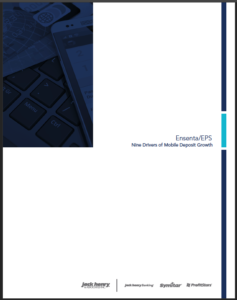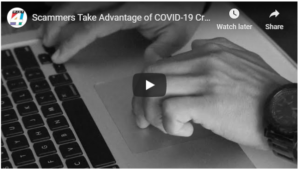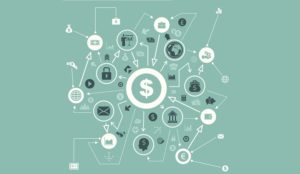Uncategorized
A story from the New York Post features Case William Kelley, 42, who utilized a home printer to create a fraudulent check to successfully purchase a Porsche from an Oklahoma Dealer. This may sound like fake news…
Read MoreTo the layman, much of the language in the AI space can be mystifying, particularly in deep learning. Take for example one of the core elements; the node. A deep learning node is “a computational unit that has one or more weighted input connections, a transfer function that combines the inputs in some way, and an output connection. Nodes are then organized into layers to comprise a network.”
Read MoreNigerian “419 scammer” goes big time “Hushpuppi” portrayed himself as successful and wealthy to recruit and fool victims It was a small error that eventually snared him By now, the phrase “Nigerian email scammer” has become a cliche to the extent that one wonders if they actually exist in the literal sense — a person…
Read MoreEnsenta/EPS has put together an excellent report exploring NINE DRIVERS OF MOBILE DEPOSIT GROWTH (You can download a copy HERE). They come out of the gate by noting that large financial institutions continue to invest in increasingly better mobile deposit user experiences for two reasons: Improving return on investment (ROI) Growing their deposit base Given…
Read MoreAn article by Antoinette Burnside, assistant vice president and product manager for Kennewick-based Community First Bank and HFG Trust, appeared in the Tri-Cities Area Journal of Business, describing how pervasive check fraud is feeding financial fraud in general.
Read MoreAmong the myriad fraud schemes emerging during the COVID-19 crisis are “money mule schemes.” A money mule is “a person who transfers illegally acquired money on behalf of or at the direction of another.” These are scams that, frankly, take advantage of the desperation some persons and businesses feel due to to COVID-19 economic impacts. In this climate, actors are able to fairly easily deceive otherwise savvy victims by impersonating federal government agencies, international organizations, or charities.
Read MoreModern bank consumers are more and more comfortable interacting with their accounts online, often from a portable device. It’s never been easier to make deposits — using an app on an always-handy phone — and see the “funds available” right in an account, reassuring the user that the money is indeed deposited and… available. MyBankTracker…
Read MorePymnts.com looks at the startling emerging story of a Germany payments company called Wirecard, where as much as $2.1 billion may be unaccounted for.
The story notes that “even the largest companies with the most resources to digitize and combat fraud are not immune to the risk — from both within and outside of, the organization.”
Read MoreForbes magazine reports on a recent AI Today podcast wherein Casey Royer of USAA, a large US bank serving the military community, shared information on how the bank is adopting AI, how they’re using AI to broaden USAA banking offerings, make their operations more effective and efficient, and offer greater value to their growing customer…
Read MoreAs seen in the above video, scammers representing themselves as officials of government agencies is a common tactic. Victims are caught off-guard by the scammer’s aggressive tone and threats of legal repercussions, raising the victim’s anxiety and clouding their judgement to extract money from them. The scammers have adopted a new angle, utilizing the pandemic to their advantage.
Read More








